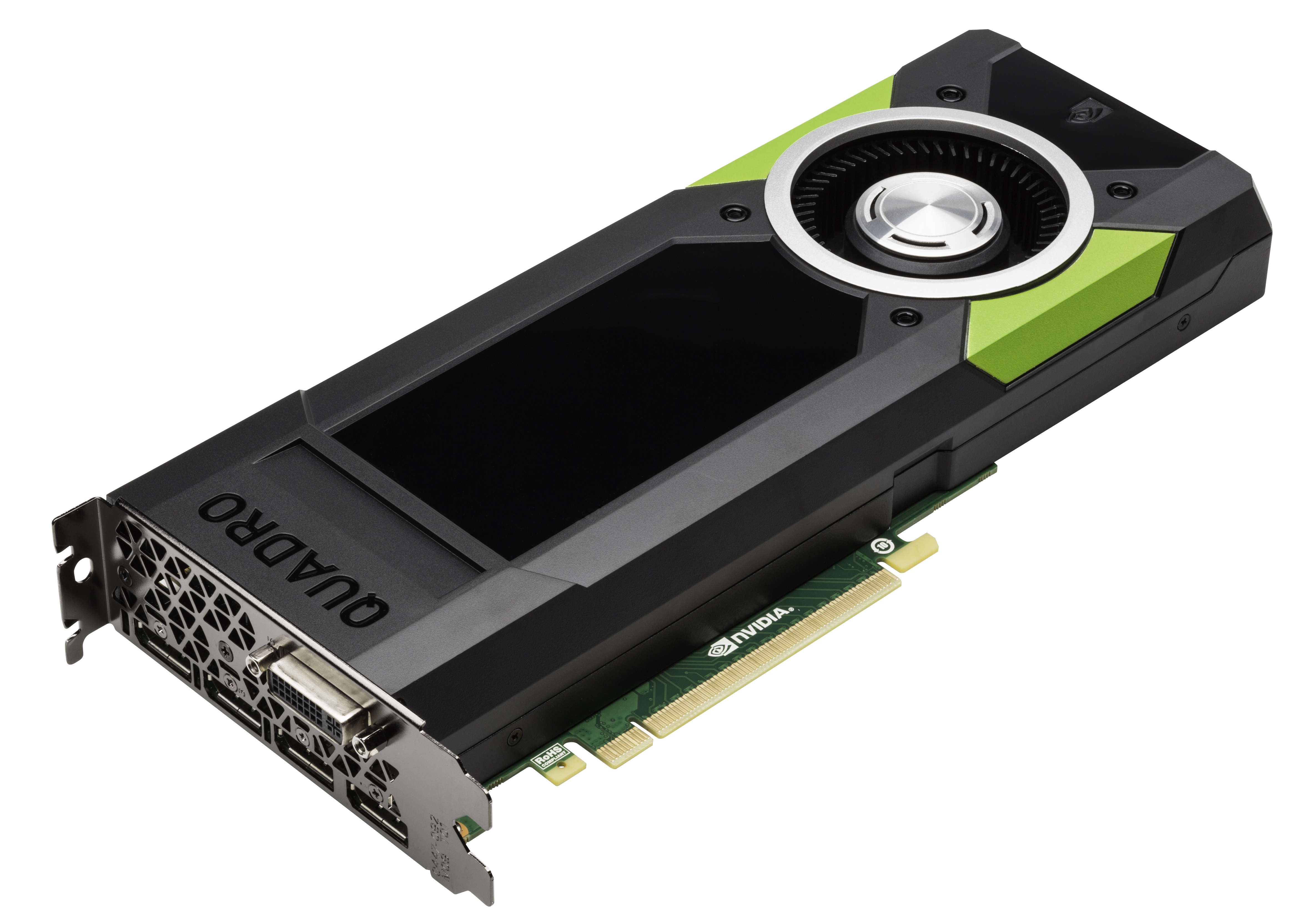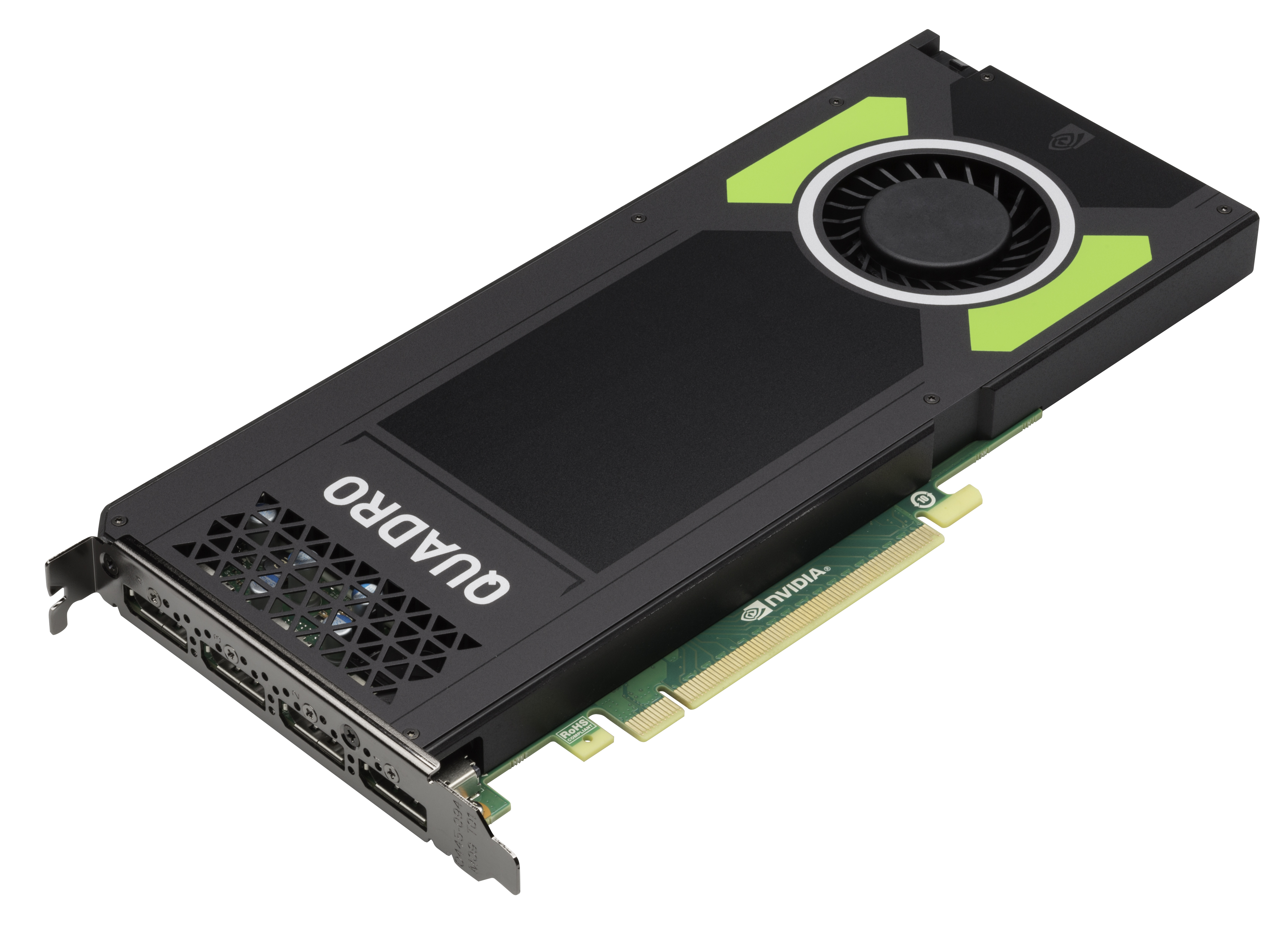Nvidia Announces Quadro M5000, M4000 Maxwell-based Pro Graphics Cards At SIGGRAPH
On the heels of its introduction of the Quadro M6000 at NAB in April, at SIGGRAPH, Nvidia announced the release of two more Maxwell-architecture-based Quadro professional graphics cards, the Quadro M5000 and Quadro M4000.
| Header Cell - Column 0 | Quadro M5000 | Quadro M4000 |
|---|---|---|
| GPU Architecture | Maxwell | Maxwell |
| CUDA Cores | 2048 | 1664 |
| GPU Memory | 8 GB GDDR5211 GB/s | 8 GB GDDR5192 GB/s |
| Single Precision | 4.3 TFLOPS | 2.6 TFLOPS |
| Displays | 4 x 4K | 4 x 4K |
| Board Power | 150w | 120w |
These new cards replace the Quadro K5200 and Quadro K4200, and the Maxwell architecture improvements allow them to, like the Quadro M6000, double the performance of the cards that preceded them. This leaves the Quadro M4000 with theoretical performance that would surpass the previous top-end Quadro K6000 in a single slot, according to Nvidia.
Pricing data was not available at press time, but it is safe to assume that they will occupy the same price point as their predecessors.
Follow us @tomshardware, on Facebook and on Google+.
Get Tom's Hardware's best news and in-depth reviews, straight to your inbox.
-
ragenalien So if they can make these cards single slot, why can't we get single slot geforce cards?Reply -
noobzilla771 Is it worth paying more than 4x to get professional cards? I don't plan on gaming, but I feel like I will get better performance with same price consumer cards for CAD applications.Reply -
ragenalien ReplyIs it worth paying more than 4x to get professional cards? I don't plan on gaming, but I feel like I will get better performance with same price consumer cards for CAD applications.
It depends on the application. There are some apps that NEED a quatro/professional card or they wont work/work so slowly they aren't worth it. Others function just fine with regular geforce cards. -
dragonsqrrl ReplyIs it worth paying more than 4x to get professional cards? I don't plan on gaming, but I feel like I will get better performance with same price consumer cards for CAD applications.
It depends on what you're doing, certain applications see significant performance gains from professional cards over their consumer counterparts, including CAD. And it's not all performance either, certain viewport renderers don't work properly on consumer cards, so it's also about driver validation and support. Some workloads require ECC support, or 10-bit color depth support. It's all about weighing your specific needs against the additional price, performance, and features offered by Pro cards. -
dragonsqrrl Reply
They could, but unlike Quadro's that's at the discretion of Nvidia's AIB partners. There is a single slot 750 Ti, but I'm guessing at 120W you're pushing the TDP limits for a single slot card. For consumer cards that straddle that TDP threshold, like the 960, AIB partners are sure to pursue the quieter/cooler option first, if nothing else because it's likely to be the far more popular design.16436883 said:So if they can make these cards single slot, why can't we get single slot geforce cards? -
Shankovich ReplySo if they can make these cards single slot, why can't we get single slot geforce cards?
The pro cards are chips that come out of the foundry almost perfect and are very stable. They can run very hot without issue, but they're also down clocked to survive running 100% for sometimes days on end. It wouldn't be cost effective for us in gaming cards.
Is it worth paying more than 4x to get professional cards? I don't plan on gaming, but I feel like I will get better performance with same price consumer cards for CAD applications.
No it's not. I have a FirePro W9100. It runs games as good as the R9 290X, but I need it for Ansys and CATIA. If you don't need a pro card, the gaming cards are just as good, and a bit better. Like I said above, pro cards are a bit down clocked and their firmware targets stability first, plus overclocking them is a headache. -
littleleo ReplyIs it worth paying more than 4x to get professional cards? I don't plan on gaming, but I feel like I will get better performance with same price consumer cards for CAD applications.
If you are using CAD with a Quadro card you get tech support so if you have a issue you can get help. If you are using a GeForce card they will tell you good luck, and hang up on you. -
Draven35 We covered this in an article several years back where we put consumer cards versus professional cards and the pro cards did indeed significantly outperform the consumer cards in professional apps. At the time, the lowest end professional card we tested often outperformed the top end game card, and if not, it outperformed most of them.Reply
Off to SIGGRAPH. -
iamacow ReplySo if they can make these cards single slot, why can't we get single slot geforce cards?
Because these are lower TDP and thus lower clocks. Quadros are basically gimped Geforce cards that go forever. My Quadro FX 4800 is still going strong 24/7
-
palladin9479 Reply16437259 said:Is it worth paying more than 4x to get professional cards? I don't plan on gaming, but I feel like I will get better performance with same price consumer cards for CAD applications.
Depends, is it revenue generating and do you need manufacturer support? Hardware wise there is very little difference between a Quadro and a Geforce, the software drivers on the other hand are not only optimized but also certified and supported for specific applications. If a business is using a specific application, and that application manufacture has Quadro certification, then that business can be certain to get the advertised results. Both nVidia and the application vender have legal liability for costs incurred if the Quadro product doesn't' work or produces faulty results. A GeForce product on the other hand has no such guarantee or liability. Same with Radeon and Firepro cards. Same with many business targeted solutions, business's pay an extra premium for the support and legal liability. Those are not needed for the home user and thus they don't pay for them. Where it gets dicey is the independent professional who works on contract with their own gear. There may or may not be a business case for them to spend the extra money on the support and liability that comes with a professional level graphics card.

